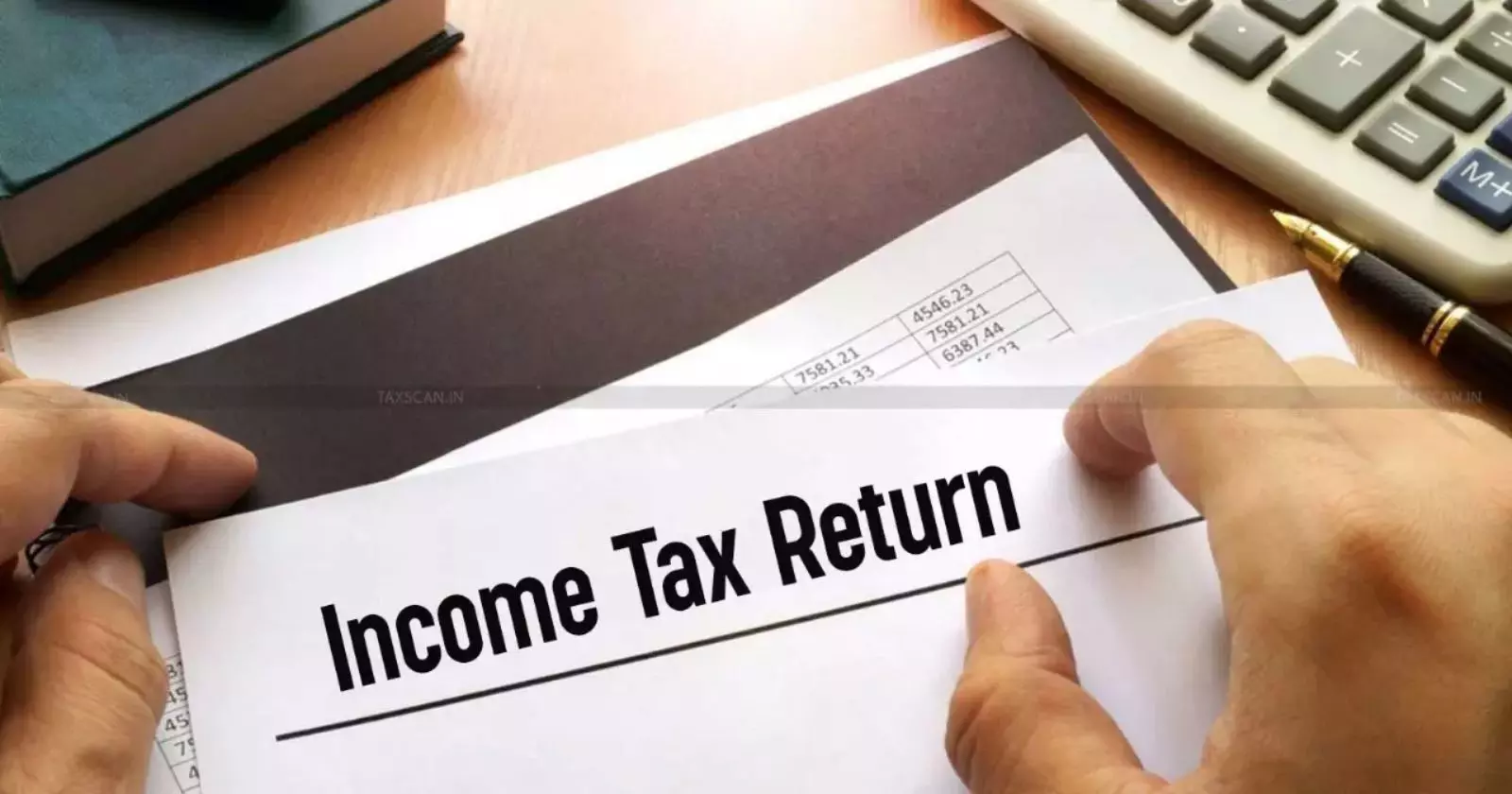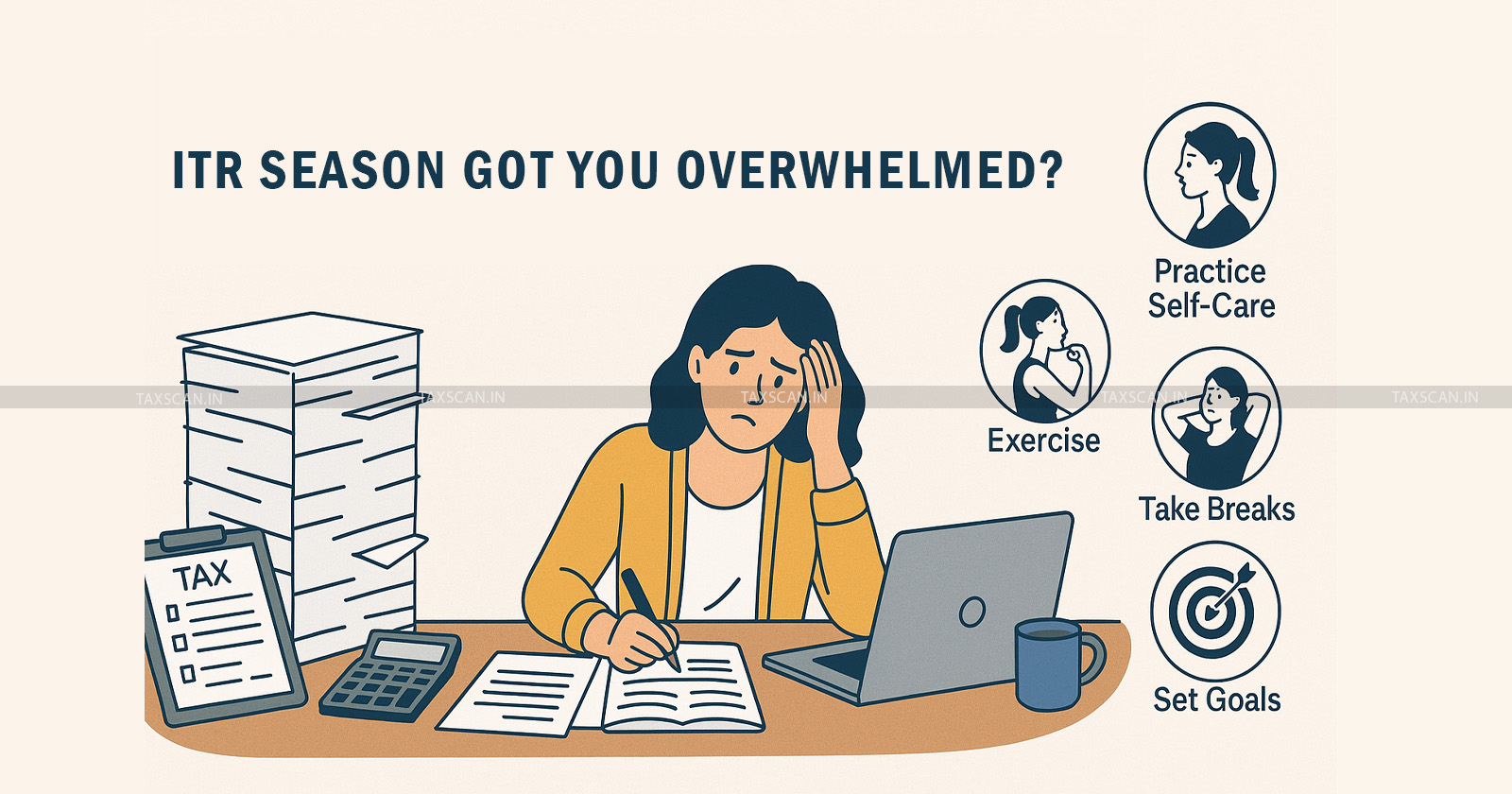Post-ITR Filing Burnout as a Tax/Finance Professional? How to Deal with It and Know When to Seek Help
After the deadline passes, many suffer from burnout. Recognising the signs, acting early, and using support tools can prevent longer-term damage.

Income Tax Return (ITR) filing season pushes many finance professionals-CAs (Chartered Accountants), CS (Company Secretaries), tax practitioners, auditors-past their limits.
1. Burnout Among Professionals: What the Data Says
- In India a report by MediBuddy & the Confederation of Indian Industry found 62% of Indian employees report burnout due to work-related stress and poor work-life balance. (The Economic Times)
- Globally and especially in Asia, about 30% of workers report signs of burnout; in Asia somewhat higher. (McKinsey & Company)
- Among accountants specifically, a survey reported 99% of accounting & finance professionals had some level of burnout. Of those, 54% were at or above average levels, and 24% admitted medium-high or high levels. (floqast.com)
- Chartered Accountants in a recent study were found to have over 20% increase in burnout symptoms compared to peers in other sectors. (internationalaccountingbulletin.com)
These numbers show that CA/CS/Tax Practitioners are far from immune. The nature of tax deadlines, liability risks, last-minute client issues, and frequent changes in law add extra load.
Master the Latest Amendments in Income Tax Act Click here
Read Also:
2. Recognise the Signs of Post-Deadline Burnout
Burnout isn’t just exhaustion. Look out for:
- Physical symptoms: insomnia, persistent headaches, digestive issues
- Emotional symptoms: irritability, feeling detached, guilt about rest
- Cognitive symptoms: difficulty concentrating, frequent errors, feeling overwhelmed
- Behavioural: withdrawing from colleagues, skipping self-care, neglecting non-work life
For CA, CS, Tax Practitioners, mistakes can carry regulatory, reputational or financial risk. That increases stress.
3. Recovery After the ITR Deadline
- Take a break, even a few days off. The brain needs downtime.
- Re-establish routine: regular sleep, meals. After long intense work, habits often erode.
- Declutter: sort and postpone non-urgent tasks. Accept that not everything gets resolved immediately.
- Move your body: walking, yoga or simple stretches help reduce tension.
- Reduce screen time outside work. Your eyes and mind need rest.
- Eat balanced meals. Stay hydrated. Overreliance on caffeine backfires.
- Practice mindfulness: meditations, journaling, breathing exercises.
4. Self-Care and Daily Coping
Studies among Chartered Accountants show meditation programs (e.g. an 8-week Heartfulness meditation intervention) significantly reduce emotional exhaustion and improve satisfaction with life. (ResearchGate)
5. Support Networks: Peers, Mentors, Community
- CAs, CS, Tax Practitioners often work in teams or professional bodies. Lean on forums, peer groups. Sharing experiences reduces isolation.
- Talk with family/friends. They can help you see when you’re pushing too hard.
6. Using Professional Mental Health Help
When burnout lasts more than 2-3 weeks post-deadline, or starts interfering with sleep, relationships or performance, seek professional help. Many apps offer discreet, efficient access (For Eg: Trusme and BetterHelp) to mental health professionals for finance and tax professionals so you can fit help into a busy calendar without adding more stress.
Want a deeper insight into the Income Tax Bill, 2025? Click here
7. Long-Term Strategies for Resilience
- Distribute workload over the year where possible. For example, begin preparatory work well before the ITR deadline.
- Automate repetitive tasks (using software, templates) so when the deadline pressure arrives you have fewer manual steps.
- In firms with teams: delegate, rotate tasks, avoid over-stress on single individuals.
- Build in regular mental health check-ins (monthly or quarterly) as a norm, not waiting until crisis.
When to Seek Help: Thresholds and Signals
| Signal | Why It Matters |
| You can’t sleep more than 4-5 hours nightly even with low workload | Sleep is foundational; chronic sleep loss worsens all symptoms |
| You make critical errors (in computations, filing etc.) after deadline | Errors can lead to penalties or loss of trust |
| Emotional numbness, persistent sadness, anxiety that doesn’t fade | Risk of depression or anxiety disorder increases |
| You withdraw from professional or personal relationships | Burnout isolating self worsens recovery |
| Physical symptoms (frequent illness, high blood pressure, etc.) | Long-term health risks begin |
If any of these occur, do not wait. Use resources like licensed counselors, or professional bodies’ mental health support.
We also hope the article we covered earlier on the same topic was helpful in filing Income Tax Returns with peace and ease of mind this season.
 Also Read:ITR Season Got You Overwhelmed? Feel Good Tips for CAs to Stay Focused and Eliminate Procrastination
Also Read:ITR Season Got You Overwhelmed? Feel Good Tips for CAs to Stay Focused and Eliminate Procrastination
Burnout after ITR filing is common among CAs, CS, and Tax Practitioners but not unavoidable. Recognise the signs.
Recover with intention. Use self-care and community. When needed, seek professional help. With getting help being easier, it is high time to remember that health and mental balance matter as much as meeting deadlines.
Support our journalism by subscribing to Taxscanpremium. Follow us on Telegram for quick updates


